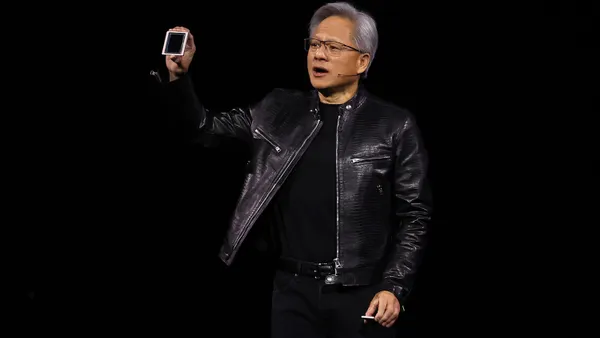Dive Brief:
- Sundar Pichai is turning Google into an "AI-first company," and has steadily expanded the company's artificial intelligence, machine learning and deep learning capabilities, according to an interview the Google CEO had with Bloomberg Businessweek. As the technology develops, Pichai believes it can solve everything from everyday tasks to climate change. The company's AI efforts have focused on both cloud computing and hardware applications, reports Bloomberg.
- Recognizing the limited pool of talent capable of AI development, Google will begin offering access to a free, online "AI crash course" to help coders take up ML, according to a Bloomberg Technology report Thursday. Helping other coders and companies learn to use its AI is beneficial for Google because they will ideally run the newly developed AI programs on Google's own platforms, including the cloud. Google has offered other AI and ML classes on its site in the past.
- TensorFlow, Google's open-source AI software library, has been downloaded 7.9 million times since 2015, making it more popular than Microsoft's alternative offering, according to Bloomberg. To help build algorithms to analyze videos, Google is also opening up YouTube videos for researchers.
Dive Insight:
Though tech giants like Google are on the forefront of AI technology, the reality is most other companies — tech or not — do not have AI resources or plans in place, despite understanding the benefits of the technology. Developing a base of AI users familiar with Google's platform is certainly self serving for the company, but it is also an important step for large companies to take to spread the technology around the enterprise.
With the AI revenue market expected to explode almost 500% within five years, Google is pushing hard to maintain and preeminent place in the market as competitors like Microsoft, Salesforce, IBM and Intel expand their own offerings. Being the go-to platform for AI and ML would be incredibly beneficial for Google in the cloud market. The company currently trails behind AWS and Microsoft and could use its cloud-based AI tech to cut into Microsoft's lead.
Google has often dominated headlines in the AI sphere, and news that its AutoML neural net system can create "child" AI architectures with image categorization accuracy rates far higher than human-developed systems reinforced the company's progress in the field.
It's never good to play catch up, but Google is certainly drawing the attention of many of its competitors and will have to continue pushing the pace of innovation forward.











